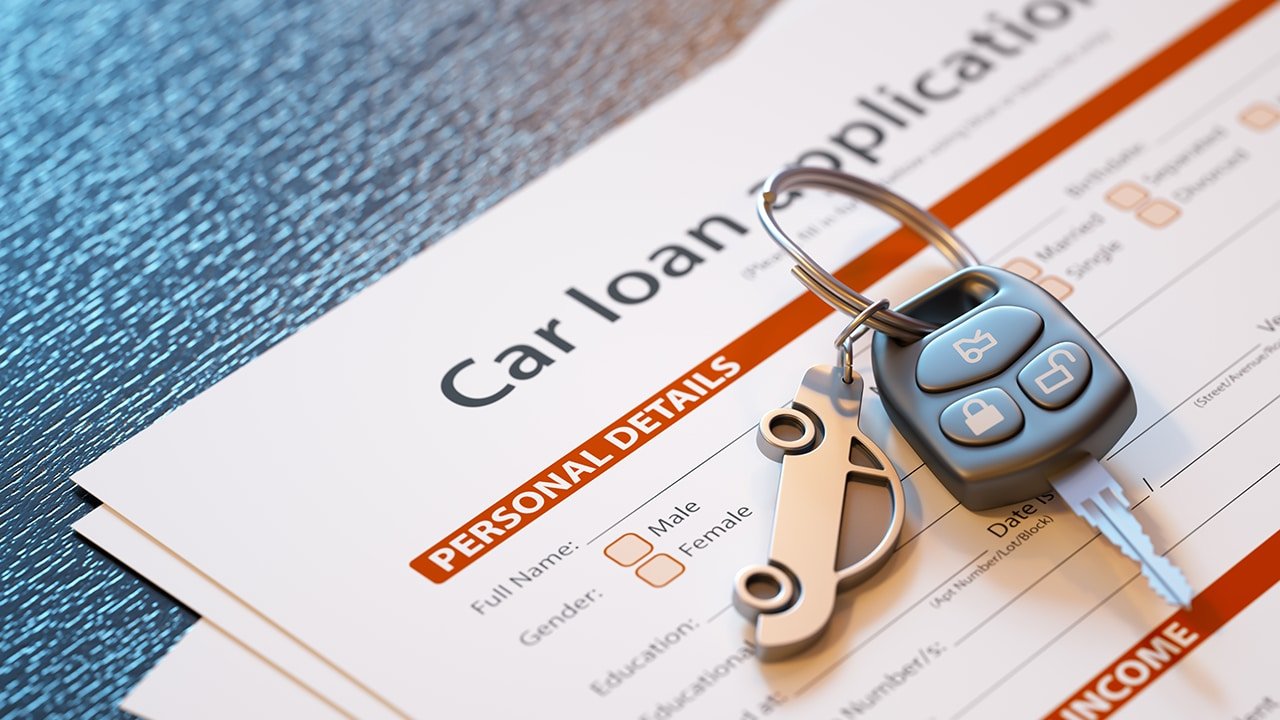Understanding Second Hand Car Loans
Second hand car loans are a type of financing option specifically designed for individuals looking to purchase pre-owned vehicles. These loans allow consumers to acquire a used car without having to pay the entire purchase price upfront. In the automotive financing landscape, second hand car loans play a critical role as they provide an accessible entry point for many potential buyers, enabling them to own a vehicle despite budget constraints.
The terms and conditions associated with second hand car loans can vary widely among lenders. Typically, these loans will require a down payment, which is a percentage of the car’s price, and the remaining balance will be financed over a predetermined loan term. Loan terms can range anywhere from a few months to several years, with monthly payments calculated based on the interest rate applied, the total loan amount, and the duration of the loan. Interest rates can also differ depending on factors such as the borrower’s credit score, the age of the vehicle, and the lender’s policies.
One of the significant advantages of opting for a second hand car loan over a new car loan is the lower overall cost. Used vehicles generally depreciate at a slower rate than new cars, allowing borrowers to potentially secure a more favorable financing arrangement. Additionally, second hand car loans often come with less stringent eligibility criteria compared to loans for new vehicles, making them an appealing option for first-time car buyers or those with less-than-perfect credit histories. Moreover, insurance premiums for pre-owned cars tend to be lower, resulting in overall savings for the buyer. This combination of factors makes second hand car loans a prominent choice in the automotive financing sector.
Benefits of Choosing a Second Hand Car
Opting for a second hand car presents several notable advantages that cater to both budget-conscious consumers and those seeking value in their vehicle investments. Firstly, one of the most apparent benefits is the lower purchase price associated with used vehicles. Compared to brand new cars, second hand cars often come at a fraction of the cost, enabling buyers to acquire a reliable mode of transport without exceeding their budgets.
Additionally, purchasing a used car mitigates the effects of rapid depreciation that typically plagues new vehicles. New cars can lose substantial value within the first few years, sometimes up to 20-30% in the initial year alone. In contrast, a second hand car has already undergone most of this depreciation, offering better resale value and allowing consumers to make a more efficient investment. This is a significant consideration for those looking to finance their purchase through mechanisms such as a second hand car loan, as the initial loan amount required will be considerably lower.
Furthermore, buyers of second hand cars can access a wider selection of vehicles, which includes various makes, models, and years that may no longer be available at dealerships for new cars. This variety enables consumers to choose from an array of vehicles that fit their specific needs, whether they are looking for fuel efficiency, size, or luxury features. In many cases, buyers can secure a car with higher-end features or better performance at a price point they could not have afforded with a new vehicle.
Taken together, these benefits illustrate why opting for a second hand car is often viewed as a financially savvy decision. For many consumers, the ability to save money and access a broader range of vehicles ultimately leads to satisfaction in their automobile choice.
Types of Second Hand Car Loans Available
When considering a second hand car loan, consumers face various financing options tailored to their individual needs and financial situations. Understanding the different types of loans available is essential in making an informed decision.
One of the most common types is a secured loan. This type of loan requires the borrower to pledge the vehicle as collateral, which means if payments are missed, the lender has the right to repossess the car. Secured loans usually offer lower interest rates compared to unsecured loans, making them an attractive option for many buyers. However, the risk of losing the car is significant, especially for those with unstable financial situations. Additionally, the repayment terms often extend over several years, which can lead to prolonged debt if not managed carefully.
On the other hand, unsecured loans do not require collateral, providing a less risky alternative for borrowers. These loans typically come with higher interest rates due to the increased risk assumed by the lender. Borrowers may find it more challenging to qualify for unsecured loans, especially if they have limited credit history or a lower credit score. The repayment terms can vary significantly based on the lender’s policies and the creditworthiness of the borrower.
Dealership financing presents another option. Car dealerships often partner with financial institutions to offer loans directly to customers. This can be convenient, as buyers can complete the entire purchase process in one location. However, interest rates may be higher than those available through banks or credit unions. It is crucial for consumers to shop around and compare terms with other lenders to secure the best deal possible.
Each type of second hand car loan offers distinct advantages and drawbacks, making it essential for consumers to evaluate their financial situation and preferences prior to making a selection.
Preparing for Your Second Hand Car Loan Application
Securing a second hand car loan requires careful preparation to ensure a smooth application process and favorable loan terms. The first step is checking your credit score, as this will have a significant impact on the interest rates and approval chances offered by lenders. Obtain a copy of your credit report from a reputable source and review it for any inaccuracies. If discrepancies are found, address them promptly, as a favorable credit score can help you qualify for better loan options.
Next, it is essential to determine your budget limits. Assess your current financial situation to establish how much you can afford to borrow without compromising your budget. Consider factors such as monthly repayments, insurance, maintenance costs, and registration fees. This information will enable you to narrow down your options and create realistic financial expectations, ensuring you don’t overextend yourself financially.
Gathering all necessary documentation is also a crucial part of the preparation process. This documentation typically includes proof of identity, proof of income, bank statements, and information about the car you intend to purchase. Having these documents ready will accelerate the application process, allowing lenders to evaluate your application quickly. Additionally, research potential car purchases thoroughly. Understand the market value of the vehicles you are interested in, their condition, and any potential issues they might have. This thorough research not only helps in negotiations but also assures lenders of the viability of your car choice.
In summary, preparing for a second hand car loan application involves checking your credit score, establishing budget limits, gathering necessary documentation, and conducting thorough research on potential vehicle purchases. By following these steps, you can enhance your chances of securing a favorable loan while ensuring that the financial commitment remains manageable.
Finding the Right Lender for Your Needs
When seeking a second hand car loan, selecting the appropriate lender is a vital step in the financing process. Various options are available to borrowers, including traditional banks, credit unions, and online lenders, each of which has its own set of advantages and disadvantages. Understanding these options can greatly impact the overall cost of financing a pre-owned vehicle.
Competitive interest rates
Traditional banks often provide competitive interest rates and a variety of loan products. However, they may have stricter credit requirements and may not be as flexible as other lending institutions. On the other hand, credit unions typically offer lower interest rates and more personalized customer service due to their member-focused structure. Joining a credit union can sometimes require a small fee or the fulfillment of specific membership criteria, but it can result in more favorable loan terms for a second hand car loan.
Online lenders have grown in popularity due to their convenience and streamlined application processes. Many online platforms provide quick approvals and the ability to pre-qualify without significantly affecting your credit score. However, it is essential to scrutinize the terms offered by online lenders, as some may have hidden fees or less transparent practices. When exploring these options, potential borrowers should compare loan terms, interest rates, and any associated fees across different lenders.
Furthermore, evaluating customer service is crucial. Reading reviews and testimonials can provide insights into how well a lender supports its clients throughout the loan process. Consider how responsive they are to inquiries and how they handle issues, as these factors can significantly influence your overall borrowing experience. Ultimately, finding the right lender for your second hand car loan requires careful consideration of your financial situation, preferences, and the lending landscape. By doing thorough research and comparing options, you can select a lender that aligns with your needs and helps facilitate a smooth purchasing experience.
Understanding Loan Terms and Conditions
When considering a second hand car loan, it is crucial to understand the various terms and conditions that accompany these financial products. One of the central components of any loan is the interest rate, which can significantly impact the total cost of borrowing. Interest rates may vary based on factors such as your credit score, the type of vehicle being financed, and the lender’s policies. It is essential to compare rates from different lenders to ensure that you secure the most favorable deal.
Loan duration, or the repayment period, is another key aspect to consider. Second hand car loans typically range from one to seven years. A longer loan duration can lower your monthly payments, yet it may lead to paying more interest over the loan’s lifespan. Conversely, shorter loan terms often come with higher monthly payments but can result in paying less interest overall. It is important to find a balance between an affordable payment and a reasonable time frame to pay off the debt.
Monthly repayments should include not only the principal and interest but also any applicable fees. Hidden fees can quickly accumulate, so reviewing the entire fee structure is essential. Some lenders may charge application fees, origination fees, or late payment penalties. Be sure to read the fine print to identify these costs. Additionally, ask the lender about any penalties for early repayment, as some lenders impose additional fees if borrowers pay off their loans ahead of schedule.
Finally, understanding the terms of your second hand car loan sets the foundation for a smooth borrowing experience. By educating yourself about the critical components such as interest rates, loan duration, monthly repayments, and associated fees, you can make an informed decision, minimizing the chances of unpleasant surprises down the road.
Tips for Securing the Best Interest Rates
When embarking on the journey to obtain a second hand car loan, securing the best interest rates requires a strategic approach. One of the most effective ways to enhance your chances is to improve your credit score. Lenders assess your creditworthiness primarily through your credit report, which reflects your financial history. By paying down existing debts, ensuring all bills are paid on time, and limiting new credit inquiries, you can effectively increase your score. A higher credit score often translates into lower interest rates, making this step crucial for prospective borrowers.
Another essential tip is to shop around. Different lenders offer varied interest rates and loan terms for second hand car loans. Take the time to compare offers from multiple banks, credit unions, and other financial institutions. This not only helps in identifying the most favorable rates but also gives you leverage when negotiating. When comparing loan offers, pay close attention to the annual percentage rate (APR), which will provide a more comprehensive understanding of the borrowing costs involved.
Negotiating the terms of your second hand car loan can be highly beneficial. Many lenders are willing to discuss interest rates, especially if you have preapproval from another financial institution. Showing that you are informed and prepared can result in significant savings. Additionally, leveraging preapproval offers can help you secure a more favorable interest rate. When lenders see that you are serious about obtaining a loan and have explored your options, they may be more inclined to offer competitive rates that cater to your financial situation.
By following these strategies, you can position yourself to obtain a second hand car loan that suits your needs while minimizing your financial burden through lower interest rates.
Common Mistakes to Avoid When Financing a Second Hand Car
Financing a second hand car can be a straightforward process, but many potential buyers often fall into a few common pitfalls. One of the most significant mistakes is rushing into a loan agreement without thoroughly evaluating the terms. It is essential to take the time to compare interest rates, repayment periods, and any associated fees before signing a contract. Doing so can save you considerable amounts of money over the life of the loan.
Variable interest rates
Another critical error is neglecting to read the fine print of the financing agreement. The fine print can include details about variable interest rates, prepayment penalties, and provisions that might significantly impact your financial commitments. Understanding every clause in the loan document is crucial to ensure you are fully aware of your obligations and rights. Taking the time to seek clarification, or even consulting a financial advisor, can help avoid costly misunderstandings in the future.
Moreover, many consumers underestimate the ongoing costs associated with car ownership, which can greatly impact their budget. When financing a second hand car, it is easy to focus solely on the loan repayment; however, additional expenses such as insurance, maintenance, fuel, and taxes should not be overlooked. It is advisable to create a comprehensive budget that factors in all potential costs associated with owning a vehicle, thereby preventing financial strain over time.
Another common mistake is not shopping around for the best financing options available. Different lenders may offer varying interest rates and loan terms, which can significantly impact the total amount you will pay. By taking the time to research and compare offers, you can secure a more favorable second hand car loan that aligns with your financial goals.
Ultimately, avoiding these common mistakes can lead to a more beneficial financing experience and ensure you make a well-informed decision when purchasing a second hand car.
Conclusion: Making an Informed Decision
When considering a second hand car loan, it is essential to reflect on the wealth of information gathered throughout this guide. The decision to finance a pre-owned vehicle entails careful assessment and understanding of one’s financial circumstances, as well as the specifics of the loan itself. Before committing to a second hand car loan, individuals should consider their budget, credit score, and the overall costs associated with ownership, including insurance, maintenance, and potential repairs.
Conducting thorough research is paramount. It is advisable to explore various lenders and compare their offerings. Interest rates, loan terms, and repayment options can significantly influence the overall cost of a second hand car loan. Additionally, potential borrowers should analyze their options between dealership financing and bank or credit union loans, as each may present unique advantages and drawbacks. Understanding the total cost of borrowing and assessing whether the proposed loan aligns with one’s financial strategy will contribute to better decision-making.
Another critical aspect is the importance of personal financial literacy. Understanding one’s income, expenses, and potential future changes can help in formulating a realistic repayment plan. It is crucial to remain within means and avoid overextending financially. Establishing authoritative knowledge regarding the loan process and vehicle depreciation can also empower buyers, ensuring they are well-prepared to navigate any challenges that may arise. Ultimately, taking the time to deliberate on these factors will facilitate a more informed choice when pursuing a second hand car loan. This guided approach will not only mitigate risks but also enhance the overall experience of acquiring a pre-owned vehicle.



